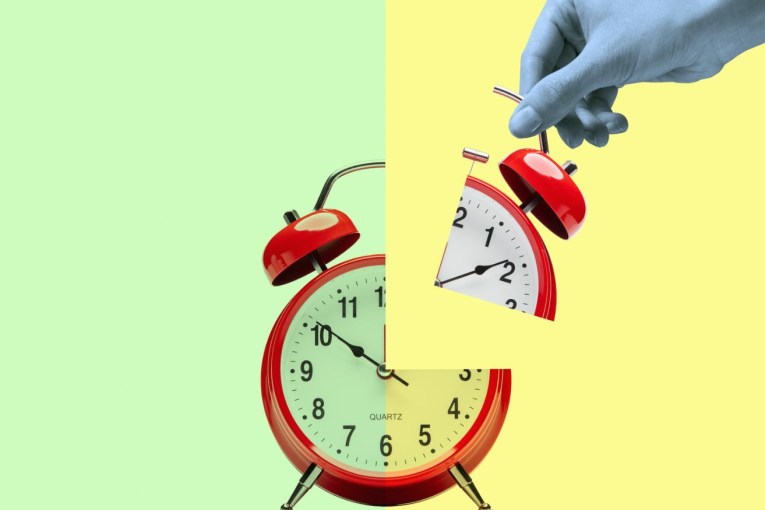Coronavirus stimulus: Now that we’re serious, what needs to happen next


The government has finally signalled that it understands the scale of the challenge ahead.
Australia started to get serious about the COVID-19 health and economic crises on Sunday.
There is much more yet to do.
On the economic front, there was good stuff from the government in the $46 billion Stimulus 2.0, most obviously the doubling of the dole under its new Jobseeker name.
Prime Minister Scott Morrison and Treasurer Josh Frydenberg signalled they now have an idea of the size of the challenge after the narrow focus of the $17.6 billion Stimulus 1.0 10 days before.
After weeks of promising the government had everything under control with “a plan”, Stimulus 1.0 was aimed mainly at the June quarter, as if it would all be easier by June 30.
The speed of having to produce Stimulus 2.0 and the size of the boost this time acknowledges the reality of the challenge and dislocation as most of the country goes into lockdown and entire industries are indefinitely frozen.
When trust and honesty are so important, it is unfortunate then that, as with Stimulus 1.0, the government tried to fiddle the figures to make the stimulus look bigger than it is.
This time it included the Reserve Bank’s potential bank funding to beat up a $189 billion headline.
“A total of $189 billion is being injected into the economy by all arms of government,” claims the Treasurer.
Well, not really, as various economists quickly pointed out.
Tweet from @RDNS_TAI
Funds being available for banks to lend doesn’t mean the money will be loaned out – and they are loans that are supposed to be repaid.
The NAB economics team rounded up Sunday’s effort as being worth $46 billion – about 2.5 per cent of GDP – coming on top of about 1 per cent of GDP in Stimulus 1.0.
That 3.5 per cent of GDP remains a start.
The ANZ pointed out there’s an extra $14.4 billion for the June quarter, while most of this package is delivered in the new financial year.
Tweet from @cherellemurpfry
Nevertheless, the government’s PR exaggeration still went down well at the LNP Gazette (AKA The Australian) which reckoned: “The government’s latest $66bn support package to help small businesses brings the total federal support to $189bn, almost four times what the Rudd government spent in 2009 in a bid to prevent recession”.
If you want to play “my stimulus is bigger than yours”, to be fair, you’d have to include the value of the Rudd government’s bank guarantees, among other things. It’s silly.
It also would be silly to think more help won’t be required as this is a much tougher challenge for the Australian economy than the GFC.
Then, it was possible to stimulate consumption by giving people money (the $900 cheques) and commissioning spending (the school halls and infamous Pink Batts).
Heading in the right direction
Now, the areas you would most like to stimulate are simply closed.
Jobs can’t be maintained when customers are not allowed.
Which is why measures to improve our social safety net for the unemployed and help business hang on are crucial and welcome.
Well done, Josh and Scott.
There are elements in any package that can be quibbled with, bits that will fall short and others that some smarties will exploit, but the thrust is heading in the right direction.
And to keep this crisis in perspective, we know that it will end – that if we knuckle down the worst could be over in months and that we should have a vaccine next year.
We now have incredible science that means COVID-19 isn’t the unknown and open-ended threat that the Spanish flu and the Black Death were in their time.
We might be on a war footing, but this war is defined – unlike every other war we’ve ever joined.
That should encourage greater boldness in dealing with the economic challenge, knowing there is an end to it.
The next big challenge
For many businesses then, the problem not necessarily answered by policies so far is the immediate sword hanging over their heads: Rent.
Individuals can get rent assistance through our social safety net. Your local café, dress shop, travel agent or bar can’t.
Yes, the government is suggesting, the RBA is funding and the banks say they will co-operate in lending to businesses to tide them over.
But few small businesses can realistically contemplate adding months of rent to their debt burden.
And rent, thanks to our official policy of boosting asset bubbles, tends to be very high.
There are often three parties to a business rental agreement – the tenant, the landlord and the landlord’s banker.
The landlords and their bankers will need to be understanding about what viable rent looks like this year.
It would be a stupid landlord to send a tenant broke when there’s not going to be anyone else to rent the premises.
It would also be a stupid banker to punish a landlord who drops their cap rate in these times.
Times were already tough in retail before COVID-19 hit.
The existing empty shops are a warning to bankers and landlords that this should be a year of sharing the pain.

The government claimed its total stimulus amounted to $189 billion. It doesn’t. Photo: AAP
A friend of mine with a small business has started a Change.org petition calling for the government to mandate rent concessions.
“Like all small businesses, our rent takes a significant share of our diminishing revenue,” argues David Ash.
“With the banks now offering mortgage and loan relief, it is both critical and reasonable that the government mandate a rent relief package from landlords for small business. We want our business to survive the COVID-19 recession. Urgent action required.”
Being a nation – and government – of landlords, it looks like a challenging petition for Mr Morrison.
It also could be an important plank in the overworked metaphor of the bridge to the other side for small business.
And there will be further fiscal stimulus measures.
There will have to be to avoid a deep recession.
While we’re at it
So far, we’ve had big ticket items.
There are many small but useful small ticket items if the government can be nimble.
Two examples, one small and one tiny.
Small: The government could immediately grant every sporting club it dudded in the #sportsrorts affair the money they wanted if they scored 74 points or more under the Sport Australia guidelines. The projects are local and mostly outside, which should allow work (and jobs) to progress.
Tiny: This is a brilliant opportunity for the government to reach a “commercial” settlement of the Biloela family scandal – the mother, father and two little girls imprisoned at enormous cost on Christmas Island.
The government could stress no precedent was being set, it could claim it has been entirely correct in everything it has done, but in the circumstances, common sense says the family has been punished way more than enough and it’s an egregious waste of taxpayers’ important funds to continue to do so.
There also should be room for fine-tuning or reconsidering policies.
Allowing people to access up to $20,000 of their superannuation at this point could do with greater thought.
Sure, the superannuation industry can handle the cash withdrawal, but it means individuals would be locking in losses in their super accounts at the worst time.
The Treasurer needs to realise not everyone has super ripe with franking credits to pump up their cash balances.
Tweet from @Tom_Swann








